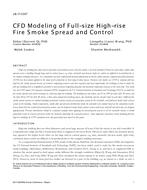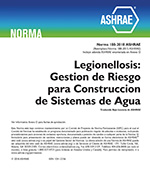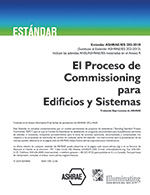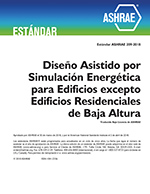Description
High-rise building fires often lead to disastrous and enormous losses if the fire smoke is not well controlled. Driven by stack effect, smoke often spreads across a building through large and/or vertical spaces, e.g. atria, stairwells and elevator shafts etc., which are difficult to be predicted due to the complex building structures. As a simulation tool that could provide detailed information on the fire smoke spreads, computational fluid dynamics (CFD) has been widely applied to the study of fire protection in these large/vertical spaces. However, few studies use CFD to simulate full-size high-rise fire smoke spreads because of extensive computing resources and time required, and more importantly, the challenges of how to model the full-size building with as simplified as possible to meet practical computing demands and maintain simulation accuracy at the same time. This study uses the CFD model, Fire dynamics simulator (FDS) developed by the US National Institute of Standards and Technology (NIST), to model the fire smoke spreads and control strategies in a full-size high-rise building. The building has two towers, one 93-m (305-ft) tower with 30 stories and the other 60-m (197-ft) with 20 stories, a three-story ground level parking spaces, two stairwells and one elevator shaft in each tower. Different fire smoke control systems are studied including mechanical exhaust system, pressurization system for the stairwells, and dedicated smoke shaft exhaust system in the building. Smoke temperature, smoke flow and pressure distribution inside the stairwells were studied based on the simulation results. It was found that the stairwell pressurization system, and the dedicated smoke shaft exhaust system could keep stairwell safe when they are designed appropriately. Pressure distribution should be examined carefully when applying the pressurization system to all the stairwells because it would potentially result in excessive pressures inside the stairwell, impairing the evacuation process. Some important experiences about modeling full-size high-rise buildings by CFD simulation were also generalized and shared in this paper.
Citation: 2017 Annual Conference, Long Beach, CA, Conference Papers
Product Details
- Published:
- 2017
- Number of Pages:
- 8
- Units of Measure:
- Dual
- File Size:
- 1 file , 1.7 MB
- Product Code(s):
- D-LB-17-C037




